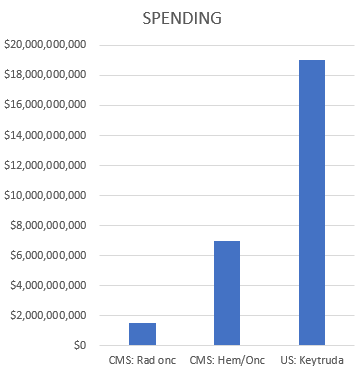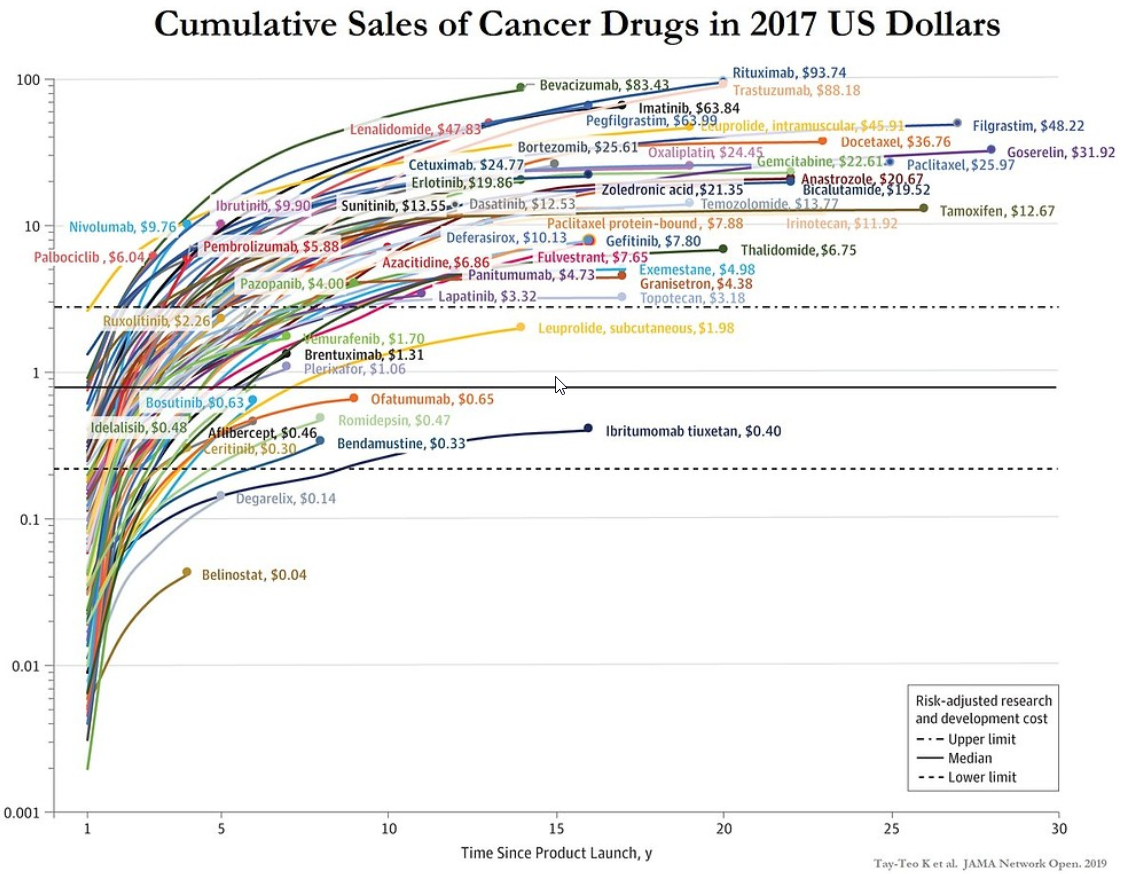Epilogue I. Evolving Perspectives.
From
Vinay Prasad...
If you add all these numbers up (y axis is $billions), it's about $950B/30y. Rad onc is costing society about $5-7B/y* now (my own private estimate and data;
$1.5B/y for Medicare). I think it'd be reasonable to assume the avg would be $1.5B/y for last 30y. Likely an overestimate, but let's assume. Thus it seems cancer drugs cost 20 times or more what radiation has cost society over the last 30y. Now add in all the ever-appearing immunologics etc...
It would not be unreasonable to assume therefore that for every dollar spent for rad onc care, we are spending $50... or $100?... for "chemo" care. Astounding. Whether it's 20x or 50x or 100x, or more, though, there's much perspective to be gained... positive and negative and existential... for the radiation oncologist from this mental exercise IMHO. At least monetarily, med onc is lapping rad onc
hard.
* The smart people out there will realize this works out to about $1-1.4m per rad onc. The really really smart will realize this works out to about an avg salary of $300-360K per rad onc. The really really really avg intelligence people already realize the numerator is shrinking and the denominator is growing.



